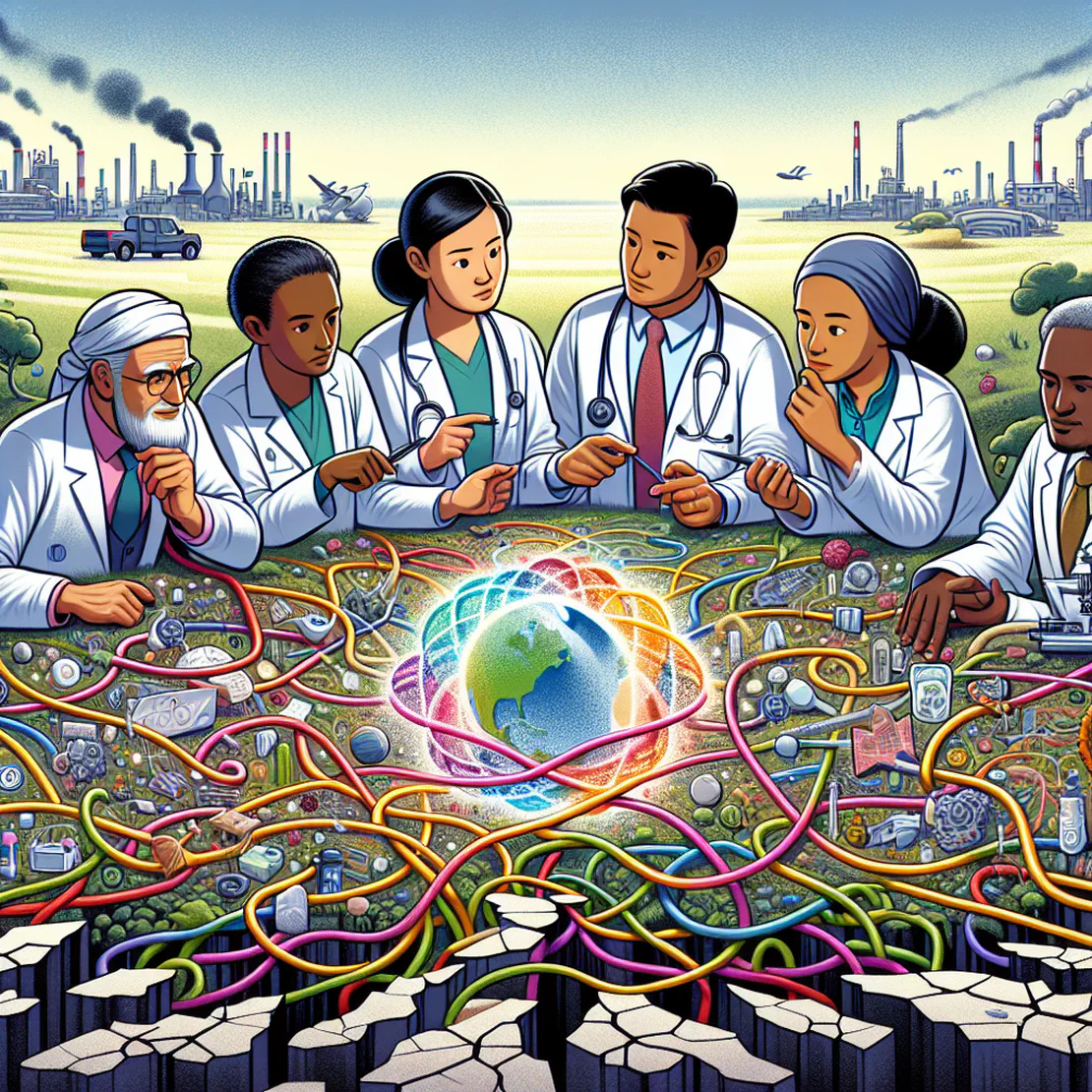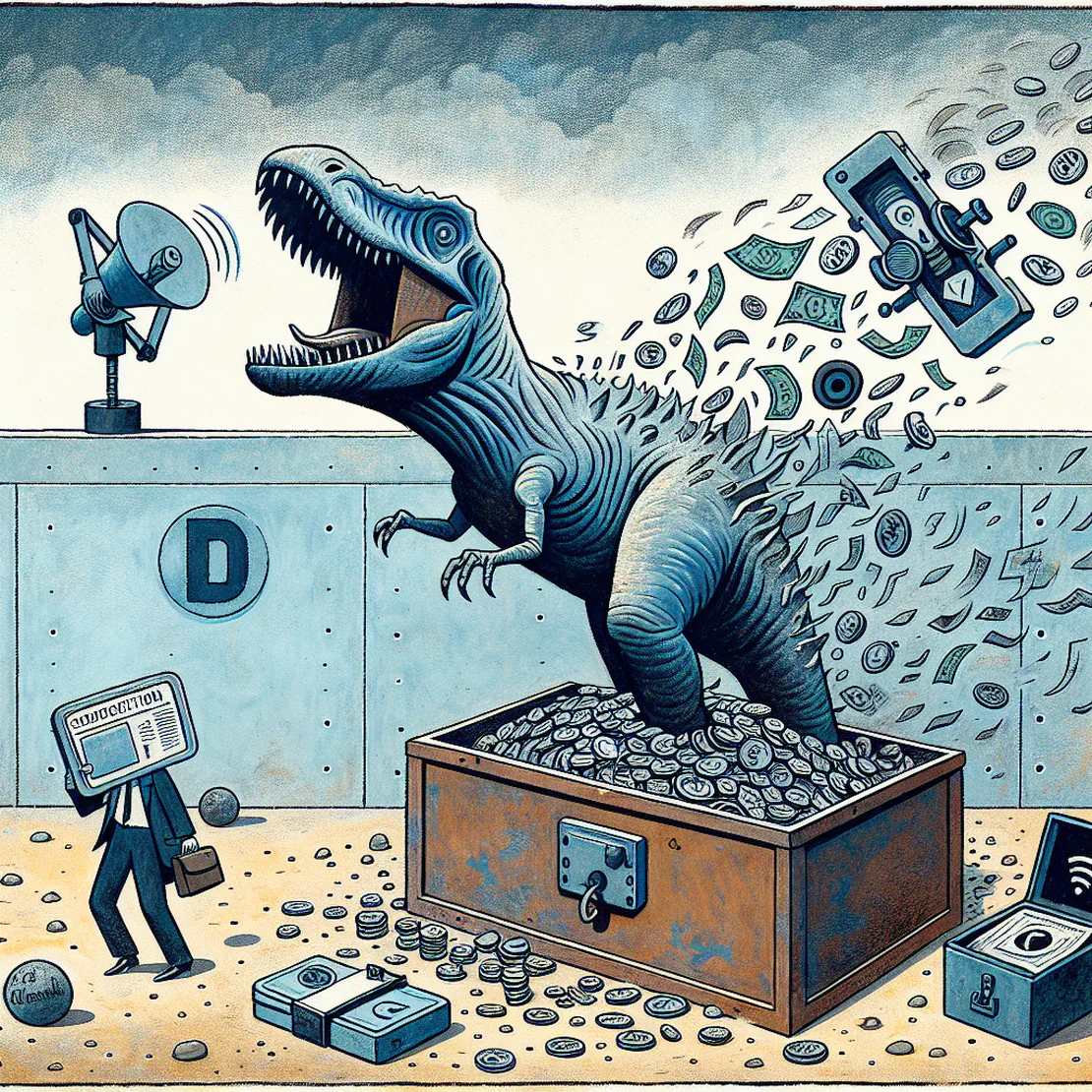
#2210 - Calley Means & Casey Means
- The Joe Rogan Experience
- Health , Metabolism , Pharma
- October 8, 2024
Table of Contents
At a Glance
-
Understanding of Healthcare Corruption - ‘What I realized fundamentally is that we are profiting from kids particularly getting addicted, sick, and then drugging them and profiting from that.’ This statement highlights the core issue of systemic corruption in major industries like pharmaceuticals and food, emphasizing the exploitation for profit.
-
Deception in Pharma Lobbying - ‘In the rooms, it’s about doing what’s right and getting this innovation to the American people and everyone can kind of fool themselves.’ This reveals the justifications used within the industry to promote harmful or addictive products under the guise of public service.
-
Impact of Industry on Health Policy - ‘We’re the biggest buyer of drugs in the country. Why are we subsidizing the rest of the world and subsidizing the pharmaceutical industrial complex?’ This point raises a critical question about the fairness and economics of drug pricing in the U.S. compared to other countries, pointing out policy flaws.
-
Call for Simple Solutions - ‘That could be one stroke of a pen, right? One stroke of a pen to reset and say, no price setting, you can charge whatever you want, but we’re not gonna pay more than insurance.’ This suggests a straightforward policy change that could potentially address major pricing issues in healthcare.
-
Political Influence and Change - ‘We know who he is. But we also know that he’s going to put good people in charge and not stand in their way and wants to be bold.’ This reflects on the potential for political leadership to enact significant changes by appointing competent individuals who can navigate and cut through bureaucracy.
-
The Role of Media and Discussion - ‘The fact that, you know, independent media is the most listened to form of media on planet earth right now, that is a good thing.’ Highlights the importance and power of independent media in shaping public discussion and awareness on critical issues.
-
Personal Impact and Motivation - ‘We rushed to her side. She died 12 days later, just totally surprisingly. And Kasey and I on her gravesite literally hugged each other and said, we want to write a book and we want to make this and evangelize this, inspired by you and others.’ This poignant moment explains the personal motivation behind the speakers’ advocacy and their drive to initiate change in healthcare practices.
What to Do
-
‘Prioritize transformational change in healthcare systems’ - ‘To address systemic issues, reorient incentives, and ensure health policies and funding are science-driven and effective.’
-
‘Educate and empower individuals with health information’ - ‘Giving people comprehensive information about health issues like diabetes, obesity, and the effects of vaccines empowers them to make informed decisions.’
-
‘Focus on root cause interventions for chronic diseases’ - ‘Encourage the use of medical dollars on preventative measures like exercise and healthy diets rather than solely on pharmaceutical solutions.’
-
‘Demand transparency and accountability in health funding and policies’ - ‘Ensure that health care spending is aligned with effective care and outcomes by demanding that policies and subsidies follow scientific evidence.’
-
‘Encourage personal involvement in health advocacy’ - ‘Individual action, such as contacting representatives about health issues, can drive political and systemic change.’
-
‘Support and adopt regenerative and natural agricultural practices’ - ‘To improve health outcomes and sustainability, moving away from industrialized food production can reduce health issues linked to poor diet.’
-
‘Reduce the influence of money in healthcare’ - ‘By focusing on grassroots movements and public demand rather than industry lobbying, healthcare can become more about patient outcomes than profit.’
-
‘Reform health education and practice standards’ - ‘Updating medical training and practice guidelines to reflect current understanding of holistic and interconnected health care can improve patient care.’
-
‘Utilize available health spending accounts for preventative health measures’ - ‘Encourage the use of HSA and FSA for funding preventative health measures like gym memberships and nutritional counseling.’
-
‘Challenge and change the current siloed approach in healthcare’ - ‘Adopting a more holistic view that treats the body as an interconnected system rather than isolated parts can lead to better health outcomes.’
What to Get
-
Sunlight - Mentioned as not being asked about in the context of child care, suggesting its importance in health.
-
Steak and Broccoli - Cited as examples of good foods that humans naturally know are beneficial.
-
Metabolic Health Sensors - Discussed in the context of helping people understand the impact of diet on health.
-
Exercise - Recommended as a root cause metabolic intervention.
Summary
In this episode of “The Joe Rogan Experience,” Joe Rogan engages in an insightful and intense conversation with guests who are deeply involved in addressing systemic issues within the American healthcare and food industries. The discussion focuses on the negative impacts of these industries on public health and the complicity of various institutions in exacerbating these problems.
The conversation starts with a former lobbyist explaining his journey from working within the political and corporate system to becoming a critic of the same practices he once endorsed. He shares troubling insights into how major industries manipulate scientific reports and fund panels to downplay the risks associated with opioids and sugary drinks, emphasizing the pervasive influence these industries have on public health policies.
A significant part of the podcast delves into the manipulation of research and public opinion by major corporations. One guest details how companies like pharmaceutical giants and food corporations spend heavily on lobbying and funding research to control the narrative in scientific studies and mainstream media. This manipulation leads to public misinformation about crucial health issues like obesity, diabetes, and opioid addiction.
The guests discuss the broader implications of these issues, pointing out that the current healthcare crisis reflects a larger systemic problem tied to environmental degradation and a departure from natural living. They argue that human health is deteriorating as a direct consequence of the harmful practices endorsed and propagated by powerful corporations and complacent governmental agencies.
The episode concludes on a somewhat hopeful note, with the guests expressing optimism about the power of independent media and grassroots movements to bring about change. They emphasize the importance of public awareness and the role of informed citizens in challenging and changing the exploitative practices of influential industries.
Overall, the podcast episode is a compelling critique of the deep-seated corruption within systems meant to protect and promote public health, highlighting the urgent need for systemic change and greater accountability.


